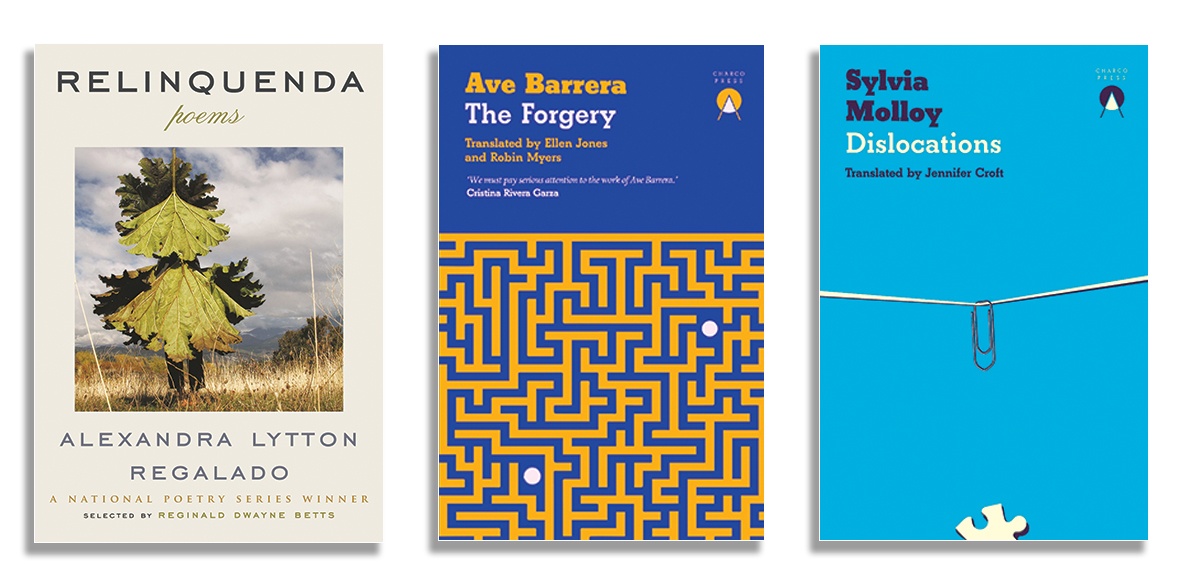This is the last article you can read this month
You can read more article this month
You can read more articles this month
Sorry your limit is up for this month
Reset on:
Please help support the Morning Star by subscribing here
ALEXANDRA LYTTON REGALADO’s second poetry collection Relinquenda (Beacon Press, £15) is a powerful and moving exploration on paternal love, death and redemption and the relationships between the poet and men, including with her husband and son.
The book, a National Poetry Series winner, opens with a series of short epigraphs, including one by Nezahualcoyotl, a philosopher, architect, poet, warrior, and ruler of the city-state of Texcoco in pre-Columbian Mexico: “No-one will turn to jade / no-one will turn to gold: / On Earth it will be kept / We will all go / there, in the same way.”
These lines set the tone for a remarkable book that has at its centre the long illness and passing of the poet’s father. In one of my favourite poems of the book, What My Father Taught Me about Black Holes, Lytton Regalado writes: “The ghost of my father haunts me / While he is still alive./ Thank you, he tells me, but / I don’t like poetry./ When my father says / Goodbye, he says instead, take it / Easy. He eases into the bed,/ Takes it, the light falling where it wants.”
Set between Florida and El Salvador, where the poet now lives, Relinquenda searches for answers on what it means to live between cultures, languages and homelands. It also reflects on immigration and the complex ties between US and El Salvador 30 years after her birth country’s decade-long civil war.
“These new poems deal with life in the in-between, my own midlife existence, living in two countries that are equally torn apart by violence, corruption [and] uncertainty,” said Lytton Regalado in an interview.
In the final poem, The Art Is Knowing When to Stop, she imagines a self-portrait in which “I would not be a tree / roots pushing asphalt, bowing beneath / powerlines. I would not be… a backyard tree / heavy with fruit, rising stories above a woman who pulls up / her shirt to make a basket, while her son climbs up / to the highest branches and tosses down jocotes to her. / Not the tree, not the fruit, but the seed, hard as a rock.”
Lytton Regalado’s wit and intellectual powers make hers dazzling lyrical voice. Not to be missed.
Ave Barrera’s The Forgery (Charco Press, £9,99) tells the story of Jose Federico Burgos, a failed painter from Michoacan, Mexico, who is asked by a shady businessman to forge a Renaissance masterpiece, La Morisca/The Moor, by Jan Mabuse, also known as Jan Gossaert.
The first part of the book charts Federico’s journey as he begins to copy the mysterious painting; unfortunately, the narrative rhythm and plot suddenly change in the second part, to the detriment of the story.
As it reaches its climax when the forgery is completed under duress, there are unexpected consequences. “Each brushstroke gave me a clearer sense of what needed to be done. As clear as if I myself were the original artist, as if I’d left my own self behind and become him — become his idea,” explains Federico.
It’s a book with fascinating ideas about forgery, human imposture and the complex process of creating art.
I read Sylvia Molloy’s Dislocations (Charco Press, £11,99) only days after her death in July. She was a great Argentine author, editor and legendary critic of Latin American literature.
The short novella, rendered into English by the award-winning translator Jennifer Croft, explores in a beautiful lyrical language and a series of insightful images the slow loss of a dear friend.
It is a luminous book about the loss of memory, language and personal histories written in a series of short fiction pieces, making this collection of personal vignettes into a gem of contemporary Latin American literature.
Molloy, who authored two iconic novels, Soon Jail (1981) and Shared Oblivion (2002), reveals different aspects of her relationship with an ex-partner by recounting anecdotes and seemingly mundane experiences after daily visits to her ailing friend.
Among my favourites is Sounding Out, a short story about the relationship between language, humour and human experience: “She’s been making up words for some time now, as if talking to herself in an impenetrable language. Yesterday when I went to see her she kept saying Hukuhuku. I asked her what it meant; Nothing, she said. It’s a word I made up. Then, she started counting the syllables on her fingers, rhythmically. Hu-ku-hu-ku. That’s too bad, she said, staring at her pinky: One syllable too few. Why don’t you add another one, I suggested; it could be Hu-ku-hu-ku-hu. She tried again, and this time there was a finger for each syllable. Whew, she said, smiling.”
A very moving and profound book by one of the most significant LGBTQ+ voices coming from Latin America.










